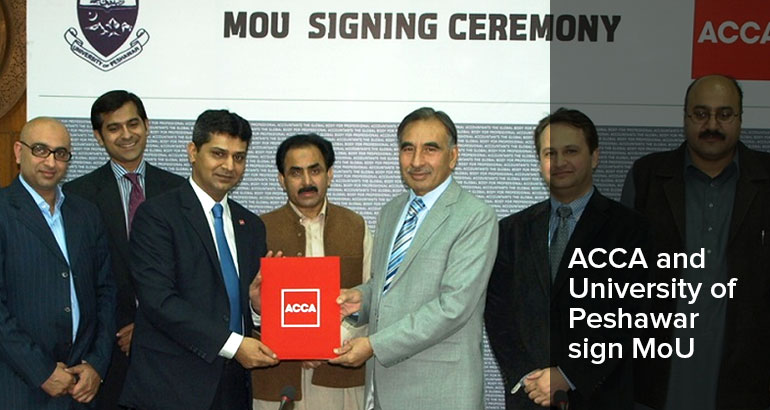KARACHI (April 9, 2010) – Maintaining its practice of submitting annual budget proposals, ACCA Pakistan Budget proposals “Supporting Fair Taxation” outline practical recommendations aimed at establishing a fair taxation system by widening the tax base and nurturing a culture of voluntary tax payment.
To make Pakistan’s corporate tax rates globally competitive, a progressive series of rates of 25%, 30% and 35%–40% for manufacturers, the service sector and banking/NBFC respectively are proposed. As an incentive to list companies, proposed is that the tax rate for listed public companies be at least 2% lower than for other companies.
To encourage local industry, Federal Excise Duty be eliminated from local manufacturing activities. Endorsing the proposed withdrawal of the exemption currently available on gains arising from trading the shares of listed companies, proposed is that FED (borne by traders of these shares) on brokerage income should be abolished, investments held for more than one year (beginning from 1 January 2010) should be exempted, capital gains/losses accrued up to 30 June 2010 should be ignored by regarding closing prices on that day as the consideration paid to acquire these shares and capital gains tax for individuals should be 10% and existing exemption of holding capital assets for more than one year should continue for individuals.
Documentation of the agricultural sector should be undertaken, support should be given to provincial governments for effective implementation of Agricultural Income Tax on the basis of income instead of acreage and any gain on the disposal of agricultural land for non-agricultural purposes or change in status from agricultural land to industrial or commercial land should be subject to Capital Gains Tax by the provincial authorities.
Awareness can be created among the general public of a responsible citizen’s duty to pay taxes through the incorporation of relevant study material in the curriculum. A positive tax culture can be promoted by making filing of tax return/NTN a qualifying factor for transfer of properties and vehicles above Rs 1.5 million. Easing procedural issues recommendations include incorporation of 7 days time period for section 159, within which time the Commissioner should be bound to issue a certificate or reject the application. The time limit for passing an order to allow or disallow payment to a non-resident without deduction of tax may be reduced to 15 days for prompt transactions.
In terms of Withholding Tax, it is proposed that the basic threshold for supplies and services payments subjected to withholding tax should be raised to Rs 100,000 and Rs 50,000, respectively, quarterly statements of withholding tax should be required, for the non-corporate sector, the basic threshold should be increased so that there is no tax up to a taxable income of Rs 300,000 a year. Small,medium and large taxpayers’ categories be introduced so as to classify tax payers on the basis of their size, resources and cash flows, instead of on the basis of their existing legal structure as individuals, AOPs or corporate bodies.
Foreign companies may be given incentives to retain and reinvest their earnings in Pakistan instead of repatriation on a yearly basis. It is suggested that an equity allowance may be given as a tax deduction in such cases. To attract foreign investment and to encourage the establishment of regional headquarters of holding companies, a new provision of a concessionary income tax rate, that is, a half rate, should be introduced in the new federal budget.
Tax incentives, along with carbon credits, will make alternative energy projects financially viable, encouraging investors to focus on such projects and to invest. Import of seeds of high-yielding varieties or those having low water requirements, and of livestock (as may be notified by the FBR on the recommendations of the relevant ministries) should be made exempt from all taxes and duties.
Where taxable income of an individual for a year exceeds Rs 8 million, it is proposed that a national insurance contribution fund to be generated at the rate of 1%–2% of the income chargeable to tax should be introduced. The national insurance fund can be used for improving health and education provision for underprivileged citizens.



